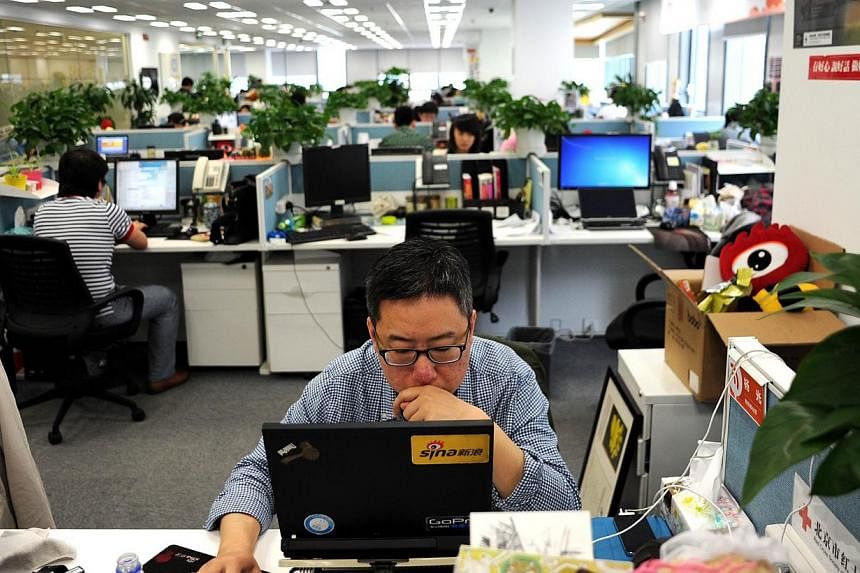A recent report in the People's Daily asks five China experts about Internet security and political thought, including Mr Fang Binxing (credited with creating China's Great Firewall). The focus is on "Internet sovereignty" - the idea that each nation has the right to control its domestic Internet space. By moving from China's rights to international law, the report goes beyond defending its Internet censorship to outlining its vision for global Internet governance.
The idea of China's Internet sovereignty is a high-profile resurrection of a concept rolled out in a 2010 White Paper called "The Internet In China". It held that "within Chinese territory, the Internet is under the jurisdiction of Chinese sovereignty". Thus, all people and organisations operating within Chinese territory were expected to follow China's Internet laws and regulations.
In an interview with New Yorker correspondent Evan Osnos at the time, Columbia University professor Tim Wu said China's idea of Internet sovereignty was simply "a statement of private international law as typically practised". Most countries, he noted, had decided that the Internet was subject to national laws.
He said China differed from the rest of the world in scale only: "Other countries, if they don't consider the Internet sovereign, have a certain respect for the network as a platform for free speech… China is unique in its lack of respect for the idea of an open Internet."
Thus, he said, its rules and regulations for the Internet included typical prohibitions against "divulging state secrets" and "subverting state power", as well as more unique bans on "damaging state honour", "propagating heretical or superstitious ideas" and "spreading rumours disrupting social order and stability". These strictures were lumped under "Internet security", making the actions equivalent to hacking or other forms of cybercrime.
The People's Daily article seeks to argue not only that China has the right to set its own rules and regulations for the Internet, but also that an international consensus should be reached to recognise this right.
It starts by noting that, in the Internet age, China has "information borders", in addition to traditional sovereignty over land, air, and sea. The report then notes that each country has the right to strengthen control over its domestic Internet, and that such actions will help safeguard order and stability in the global Internet.
In the interview, Mr Fang refers to a report last year by a United Nations-commissioned group of experts on information security, which notes that "state sovereignty and international norms and principles that flow from sovereignty" apply to state conduct of activities related to information and communication technology (ICT) and to state jurisdiction over ICT infrastructure within the territory. According to Mr Fang, the statement proves that the UN has already accepted China's idea of Internet sovereignty.
He does not mention the next item in the UN report, which notes that "state efforts to address the security of ICTs must go hand in hand with respect for human rights and fundamental freedoms set forth in the Universal Declaration of Human Rights".
The juxtaposition of these two points in the report illustrates the basic difference between China's concept of the Internet and the Western view. Is cyberspace made up of domestic spheres, each under an individual country's sovereign rule, or is the Internet as a whole subject to international rule in the name of "universal values"? The People's Daily argues for the former approach.
In the article, Professor Wang Jun of Minzu University acknowledges the difficulty of defining boundaries for cyberspace, but notes: "Although cyberspace has no national boundaries, network infrastructure has borders. Internet users have home countries. Internet firms and organisations belong to a specific country."
The inference is that each nation can control physical aspects of cyberspace and "other countries have no right to interfere".
Yet, even while holding that Internet sovereignty is immune to external interference, the article accepts the importance of having an international consensus to define cyberspace boundaries and rules of conduct.
Disagreements between countries are a major barrier to defining boundaries and implementing control of cyberspace, notes Dr Wang Xiaofeng of Fudan University. Dr Lang Ping of the Chinese Academy of Social Sciences adds that no nation can independently tackle the challenges posed by cyberspace.
They also see competition between major powers for influence in cyberspace. Dr Wang says "some countries" (almost certainly a reference to the United States) are "abusing" their technological advantages to conduct cyber espionage and cyber attacks. Mr Fang and Dr Lang complain that the US plays an outsized role in controlling cyberspace because of its technological prowess. The experts generally agree on the need for international dialogue and consensus regarding clear boundaries and rules for Internet control.
China's goal for this dialogue would be to codify its own interpretation of Internet sovereignty into international law, much as Western countries have been able to codify their idea of "universal values". The People's Daily article sees cyberspace as a contested zone where the US wields too much influence - it seeks to combat this by pushing for an international consensus modelled on its own vision for the Internet.
The writer is an associate editor at The Diplomat. This article appeared on The Diplomat website (thediplomat.com).

